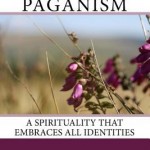The history of madness and attempts to treat it is long, convoluted, and fascinating. Different theories and treatments have come and gone, depending on the mood of the age. I think it is worth remembering that in many cultures, such episodes are not seen as mental illness, but a blessing from the gods. Many shamans have had similar experiences to what western medicine dismisses as mental illness.
In the Middle Ages, people thought that madness and learning disabilities were of supernatural origin. Holy fools were people who were ‘simple’, and were blessed and protected by God. The mad were either possessed or saintly, depending on the symptoms.
After the Reformation, people sought to control madness, and a medical model developed, and the mad were incarcerated. Various different ‘therapies’ were tried, some quite drastic.
By the twentieth century, various drugs had been developed, and both social and medical models of the causes of mental illness were discussed. The disciplines of psychotherapy (using the ‘talking cure’ to treat the social causes of mental illness) and psychiatry (for treating mental illness with drugs) developed.
In India, mental distress of various kinds was treated by giving the person a story or folk-tale to meditate on. The tale was a form of therapy which would help them to solve the issues which had given rise to the distress.
In the 1960s, the anti-psychiatry movement examined the ways that other cultures (both past and present) have treated mental illness of various kinds. Michel Foucault wrote a history of madness, Folie et Déraison: Histoire de la folie à l’âge classique, which was translated into English by R D Laing as Madness and Civilization: A History of Insanity in the Age of Reason. Some of the key insights of the anti-psychiatry movement were:
- that madness can be a consequence of the disenchantment of living in a capitalist society;
- that regulating the mad is a form of social and political control;
- that seeing visions, hearing voices, and magical thinking are the traditional attributes of shamans and witches;
- that behaviour which is considered normal in one culture may be classified as ‘mad’ by another culture;
- and that different societies treat mental illness in different ways.
Several social historians analysed the content of the visions of witches and saints from the Middle Ages, and concluded that these would be regarded as “madness” in the modern context. One member of the anti-psychiatry movement analysed the content of schizophrenics’ visions, and found recurring images of the cosmic axis (the world mountain and the world tree) and the cosmic hero.

Mental health and Wicca
Some people have argued that people with mental health issues should not take part in Wicca, because the rituals are highly emotionally charged and involve a lot of shamanic practices which people feel might exacerbate mental health issues. I disagree – I think that the practice of Wicca can help people to integrate the psyche, which would be beneficial.
I think it is important to define terms at this point, as mental health and learning difficulties and learning disabilities are all different. None of them should be regarded as an automatic disqualification for taking part in Pagan or Wiccan rituals.
Learning difficulties such as dyslexia can be an advantage in magic, because dyslexia gives you a different perception of space and awareness of landscape and shape. Autism and Asperger’s may also give you a different perspective (I have less knowledge & experience in that area).
Learning disabilities – again, why not, if people are interested, and as long as they can understand the consequences of magical workings. The ability to understand depends on the level of disability, I guess. People with learning disabilities could certainly enjoy being in Nature and communing with Nature.
Mental health issues – people with depression can and do benefit from being involved in the Craft. Anything involving manic phases or hallucinations might cause difficulties – but again, such conditions should never mean an automatic ban on participation.
I think the best way forward (if it were possible) would be for the coven member, HPs & HP, and psychiatrist or psychotherapist, to sit down together, discuss the kind of activities that happen in circle, and whether or how they might adversely affect the person with the mental health issue. As Wiccan practitioners are generally not professional psychiatrists, I don’t think it is up to us to make these decisions. The problem is that most psychiatrists would actually just assume you were deluded if you started talking about deities and witchcraft – because they are not educated about Paganism.
Ultimately, the best person to judge in these situations is the person with the mental health issue themselves. They know whether they can cope in a Wiccan circle, and can inform the high priestess or high priest of any warning signs (such as being extra manic) which may mean they can no longer judge their own fitness to be in circle, and may need someone else to make that decision for them. (This last point was actually suggested by someone with bipolar.) If the issue is severe enough to require medication, they do need to keep taking the medication, of course.
In any case, many people develop mental health issues after they have become involved in Wicca (not as a consequence of being involved, more as a consequence of various stresses and strains).
A couple of years ago, I experienced mild depression and anxiety as a result of a bout of seasonal affective disorder. The symptoms did not prevent me from taking part in rituals, and I found Wiccan rituals beneficial. During my “wobble”, Wicca was extremely helpful in keeping me balanced.
So why would we deny these beneficial effects to someone who has been diagnosed with a mental health issue?
Further reading on religion and mental health
- Thorn Mooney, Wicca and Depression
- Yvonne Aburrow, Why Do Some People Experience Deities, But Others Don’t?
- Asa West, Don’t Listen to Your Gut: Practicing Witchcraft with Anxiety and OCD
- Marg Herder, The Long Overdue Conversation About Mental Illness
- Heron Michelle, She Who is Without Oddness, Cast the First Stone
Further reading on the history of madness and psychiatry
- David Smail, Taking Care: An Alternative to Therapy
- Michel Foucault, Madness and Civilization
















